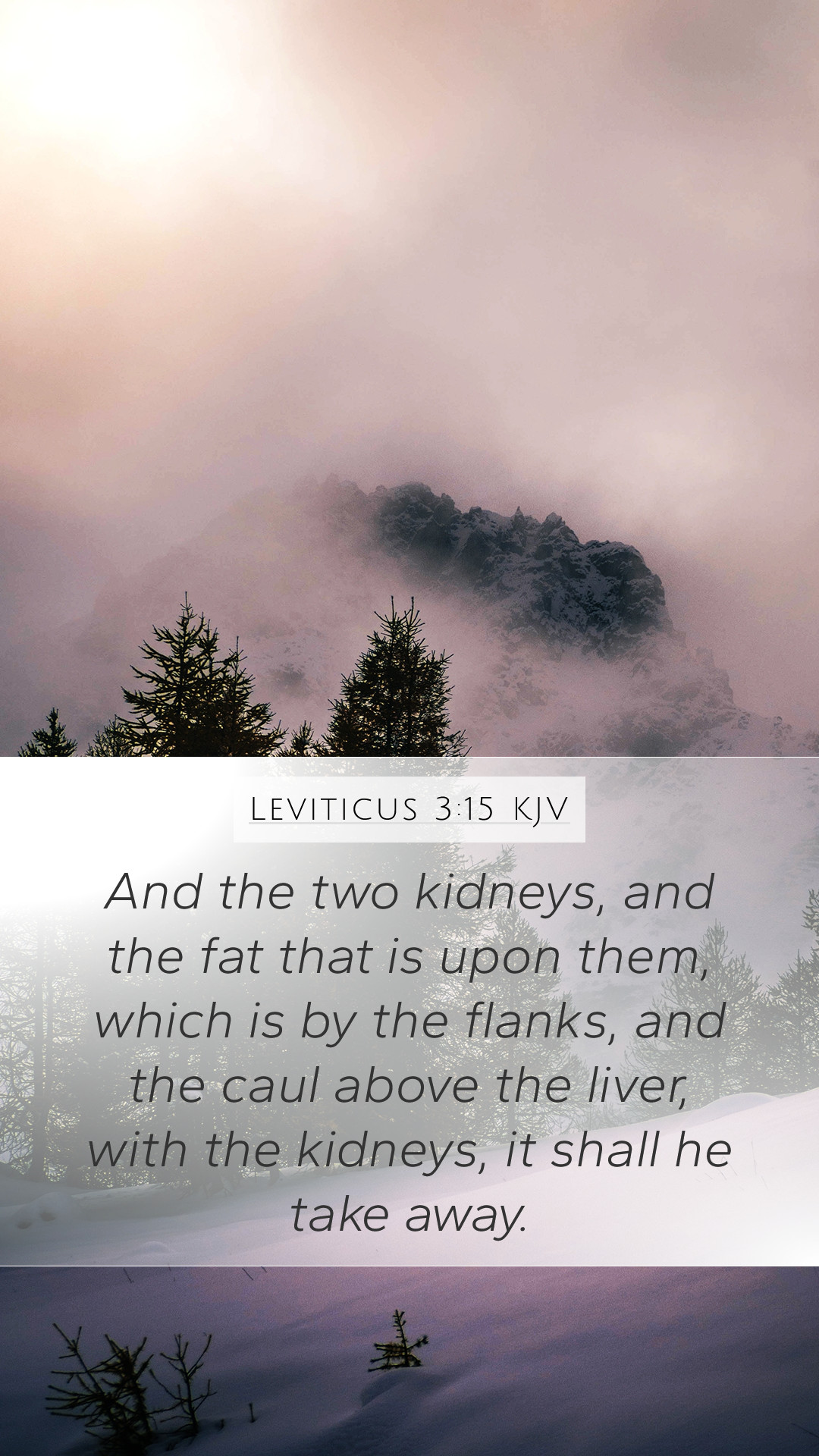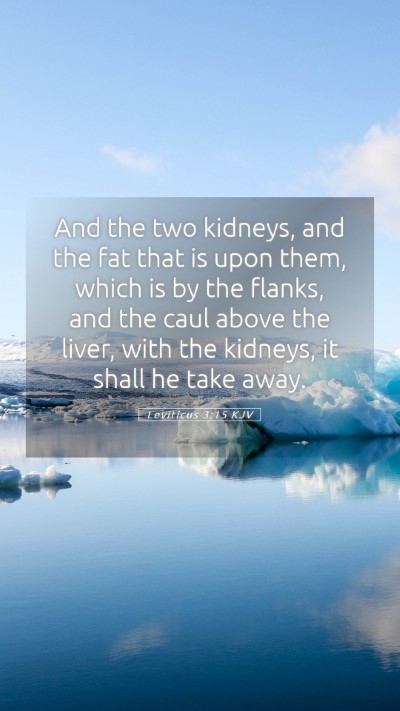Understanding Leviticus 3:15
Leviticus 3:15 states, "And the fat of the sacrifice of peace offerings shall be taken away..." This scripture has rich meanings that provide valuable insights into the Old Testament sacrificial system and its implications for both ancient and modern readers.
General Overview
In the context of ancient Israel, the passage deals with the peace offerings—also known as fellowship offerings—which were a form of communion with God. The act of presenting a peace offering symbolizes a desire for harmony with God and community, underscoring the importance of maintaining a relationship with the Divine.
Interpretation and Insights
Commentators like Matthew Henry, Albert Barnes, and Adam Clarke provide valuable perspectives on this verse, enhancing our Bible verse understanding.
- Matthew Henry comments on the significance of the fat being an important part of the offering. He highlights that fat was considered the most desirable part of the animal, symbolizing the best that one could offer to God. This reflects the notion of giving one's best to maintain a relationship with Him.
- Albert Barnes explains how the fat represents the richness of the blessings that God imparts to His people. The instructions regarding fat sacrifices indicate God’s desire for purity and intent behind sacrificial offerings—acknowledging what is bestowed by God deserves respect and proper offering back to Him.
- Adam Clarke focuses on the communal aspect of the peace offerings, stating they provided a means for participation in divine blessings among the congregation. This illustrates the importance of unity and joy in worship, fostering community through shared spiritual celebrations.
Application of Leviticus 3:15
The principles drawn from this verse can be applied to contemporary faith practices:
- The importance of giving our best to God in all aspects of life, not just in material offerings but in dedication, service, and worship.
- Recognizing that our offerings—be they tangible or intangible—should stem from a heart aligned with God’s will.
- Understanding the relevance of fellowship and community in the expression of faith, highlighting that worship is not merely an individual endeavor but a shared experience among believers.
Cross References
This verse connects with several other scriptural passages that enhance our understanding:
- Exodus 29:18 - Discusses the selection of the best portions for offerings.
- Leviticus 7:30-31 - Elaborates further on the priestly duties concerning fat portions.
- Psalms 51:17 - Highlights that God desires a broken spirit and a contrite heart rather than mere sacrifices.
Conclusion
Leviticus 3:15 serves as a profound reminder of the nature of our relationship with God and the significance of our offerings to Him. The insights from established Bible commentaries enable a deeper comprehension of this scripture, underscoring its relevance in today’s Bible study groups and online Bible study sessions. By exploring the meaning of Bible verses and their historical context, believers can grow in their faith and understanding.
Further Study Resources
To gain more insights and enhance your Bible study lessons, consider utilizing:
- Bible study guides that focus on Old Testament sacrifices
- Online resources dedicated to historical and cultural contexts of biblical practices
- Bible study courses exploring the themes of worship and offerings in the Bible


